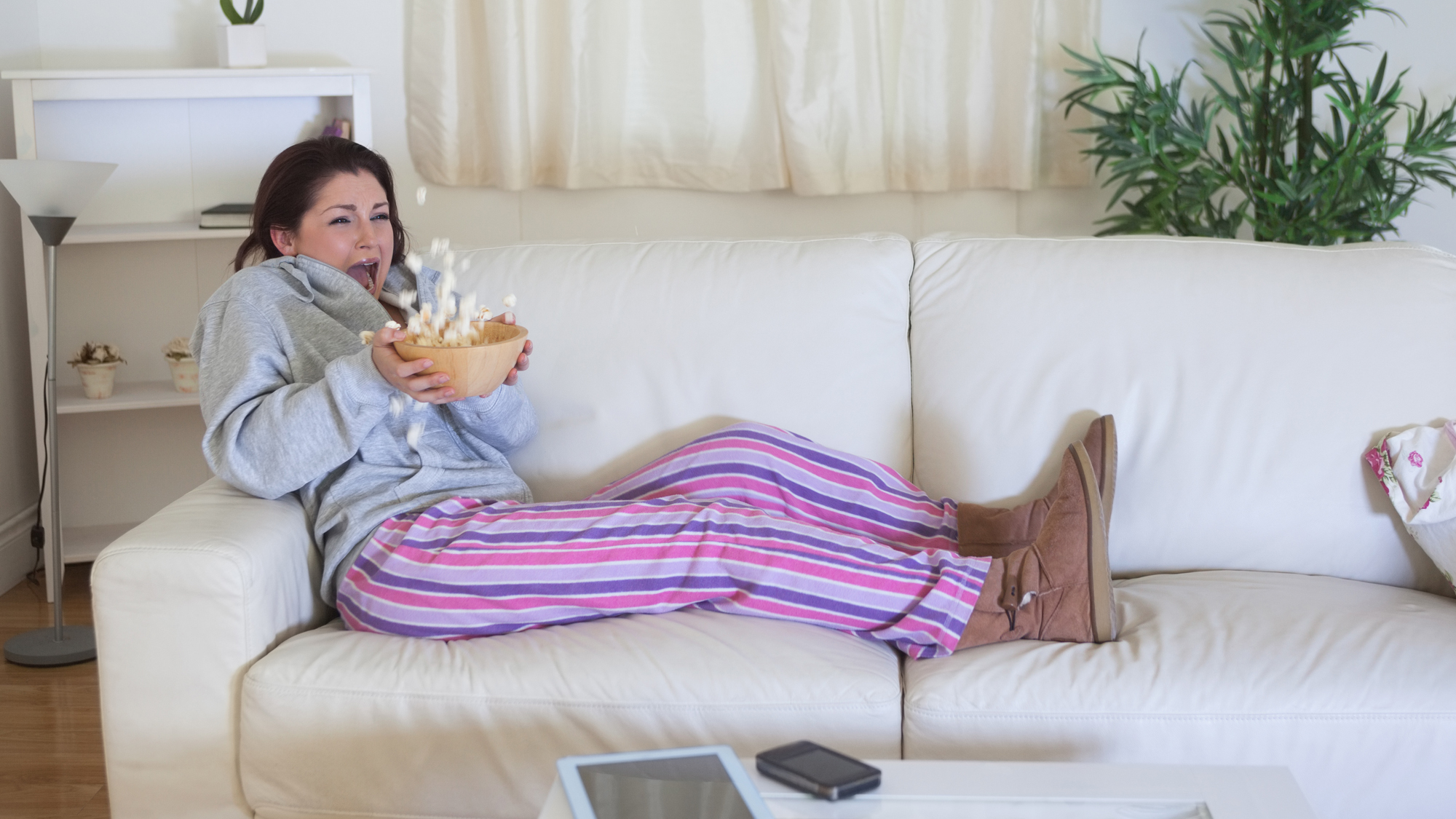Watching scary movies reduces stress and improves well-being, research finds
The study suggests that a love of all things horror may improve resilience and help us cope better in a crisis


Start your week with achievable workout ideas, health tips and wellbeing advice in your inbox.
You are now subscribed
Your newsletter sign-up was successful
Most people fall into one of two camps; those who love horror films and those who hate them. To the converted, scary movies are fun and exciting, while many of us feel heart-racing panic at the combination of suspense, audio trickery, and gore.
However, there may be some surprising benefits to lining up horror movies on your streaming playlist.
If you're feeling stressed, learning how to meditate is an excellent way to bring some mindfulness into your day. But new research suggests a passion for all things scary could help you build resilience and reduce long-term stress.
The study, which explored the links between horror fandom and mental well-being throughout the COVID-19 pandemic, found that horror fans were generally less distressed, more prepared, and had greater resilience than those less invested in the genre.
The researchers recruited just over 300 participants in April 2020, around a month into the worldwide pandemic. They chose this period as the health crisis was still in the early stages, with little known about the virus, and there was plenty of uncertainty about the immediate and long-term future.
The survey didn't only target horror fans either. The questions were designed to learn about the respondent's preferences, allowing the authors to explore the links between different interests and well-being. The participants were asked about their pandemic experience, with some questions offering a sliding scale to judge preparedness.

After analyzing the data, the researchers found that being a horror fan was associated with lower psychological distress. Similarly, fans of zombie or disaster films, referred to as 'prepper' movies, felt more prepared for the pandemic. A passion for all things scary was also linked to increased morbid curiosity, an interest in dangerous situations.
Start your week with achievable workout ideas, health tips and wellbeing advice in your inbox.
The authors noted when discussing the findings that "fiction allows the audience to explore an imagined version of the world at very little cost. Through fiction, people can learn how to escape dangerous predators, navigate novel social situations, and practice their mind-reading and emotion regulation skills."
So, while the study may have looked explicitly at the link between an interest in horror and how the participant fared in the early days of the pandemic, this possible explanation means the findings may be more generally applicable, too. The positive effects explored in this research were termed psychological resilience.
This is commonly understood as coping with and moving on from challenging or stressful situations without any long-term effects. According to the American Psychological Association (APA), you can develop resilience through practice. As the group notes, "like building a muscle, increasing your resilience takes time and intentionality."
The APA suggests a few methods for improving resilience, including building relationships, joining groups, volunteering, and looking after your body and mind. Yoga blends exercise with mindfulness, making it an ideal, low-impact way to reduce stress.
So, roll out one of the best yoga mats, schedule time each day for a session, and you'll be building resilience in no time, no horror movies required!

James is a London-based journalist and Fitness Editor at Fit&Well. He has over five years experience in fitness tech, including time spent as the Buyer’s Guide Editor and Staff Writer at technology publication MakeUseOf. In 2014 he was diagnosed with a chronic health condition, which spurred his interest in health, fitness, and lifestyle management.
In the years since, he has become a devoted meditator, experimented with workout styles and exercises, and used various gadgets to monitor his health. In recent times, James has been absorbed by the intersection between mental health, fitness, sustainability, and environmentalism. When not concerning himself with health and technology, James can be found excitedly checking out each week’s New Music Friday releases.